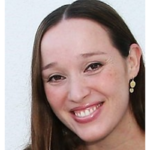
Director of Dance Movement Therapy M.A.A.T Program, The David Yellin Academic College of Education
Israel
"My Capstone Project includes a resource guide and an associated training program focusing on compassion-based practices for addressing secondary traumatic stress (STS) among helping professionals working with individuals who have experienced trauma. ACT provided a process of appreciative feedback, where we offered each other encouragement in a collaborative, creative and caring community. I LOVED being part of ACT which has been pivotal in shaping my Capstone Project into a compassionate response to STS. Since graduating, I continued working on my capstone project and the resource guide has been published by Routledge."
Capstone Project
Compassion-Based Practices for Secondary Traumatic Stress
Who did your Capstone Project serve?
My Capstone Project includes two components: A resource guide and an associated training program, both focusing on compassion-based practices for addressing STS among helping professionals working with individuals who have experienced trauma.
What was the suffering that your project addressed?
It is widely accepted that helping professionals are at high risk of developing STS – defined as the natural, consequent adverse sensations, emotions, thoughts, and behaviors stemming from knowing about a traumatizing event experienced by another person. STS can further be characterized as a condition that mirrors post-traumatic stress disorder (PTSD) symptoms. This indicates that when STS symptoms are severe, they can qualify for a full PTSD diagnosis.
How did this project address that suffering?
Fortunately, there is emerging evidence that compassion may be usefully applied to reduce traumatic stress symptoms. For example, a systematic review by Winders et al. (2020) reported evidence suggesting that higher levels of self-compassion may reduce the impact of trauma exposure and attenuate PTSD symptomatology. My Capstone Project emphasizes compassionate responses at the individual, group, and organizational levels to mitigate the adverse effects of indirect trauma exposure and promote vicarious post-traumatic growth.
Who was your audience and how many people participated?
About 130 helping professionals participated in the first training program, which continues to be available both online and in-person for a wide range of helping professionals working with individuals who have experienced trauma. Both the resource guide and training program should hopefully benefit a much wider audience in the future.
How was the project delivered (the format)?
The training was offered via Zoom through the auspices of the University of Kentucky’s STS Practice Laboratory. Since graduating, I continued working on my Capstone Project and the resource guide has been published by Routledge.
What was the reported impact on or feedback from participants? On yourself?
Examples of appreciative feedback shared by participants who took part in the training program are presented below:
- “Dr. Gottfried was very knowledgeable and effective. The way she wove together information about STS and how to practice self-compassion and compassion for others was excellent.”
- “Feeling focused, energized, grounded, and at peace. The training was wonderful and extremely useful. Dr. Gottfried has an amazing calming voice, and her calm, connected presence was felt and appreciated throughout the training. So relaxing and helpful to be walked through ways we can teach ourselves to compassionately handle STS.”
- “I am so happy I attended Dr. Gottfried’s training. It was fantastic. She addressed so much, so well, and in such a relaxed way. The training provided great useful, practical information and practices while also planting seeds for further practice and organizational change.”
How has the ACT Program helped you become an Ambassador of Compassion?
The Applied Compassion Training (ACT) offers a truly unique learning environment in which everyone belongs, and each Capstone Project is valued and celebrated. I LOVED being part of ACT, and am very thankful to ACT’s leadership, my group mentor, and my Capstone team. Creating and facilitating my Capstone Project was made possible by ACT’s unique learning process “learning by doing”. Learning is an active discovery process, and ACT has developed a wonderful environment in which learning by doing is enhanced and supported within a collaborative, creative and caring community. With deep appreciation, I express my heartfelt gratitude to Dr. James R. Doty, Director of the Center for Compassion and Altruism Research and Education (CCARE), and to ACT’s co-founders, directors and teachers: Monica Hanson, Neelama Eyres and Robert Cusick. Thank you for the first-class mentorship you provided and for being such compassionate and inspiring role models!
What advice would you give to someone who’s considering participating in the ACT Program?
ACT is by far the best course I have ever participated in, and I wholeheartedly encourage you to participate in ACT as well!
